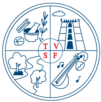Music therapy is a long-recognised art and science in India, although this expression has found a place in society only recently. It was Nada Centre for Music Therapy, a modest organisation which started the propagation of the concepts and practices relating to music therapy amongst Indians who had lost the ‘music’ in their life, despite entertainment music flourishing all around!
Though unrecognised and unsung, the Indian raga system, well-known both for its emotional content and impact, had, no doubt, provided much-needed solace for billions of people in the past. Despite the wayward weather conditions (cyclic and intense monsoons, floods, summer and drought year after year) and a recorded history of turbulence (through ceaseless invasions, intrusions, immigrations, colonisations and what not), Indian historians have observed a great deal of resilience in the approach and character of the Indic people. The most probable reason for this could be traced back to the grand musical traditions of Nada Yoga and Raga Chikitsa, highly spiritual, and laced with a never-exhausting energy content.
East or West, music is the best! It is unfortunate that the long-evolved raga system is only within the approach of a minority group of people. The long-drawn training and the high sophistication attached with the raga training is not easily accessible to the masses. Like the Sanskrit language, the ragas are restricted to a few individuals who have been able to master this art through family traditions or extraordinary interests and devotion.
The majority of Indians are yet to be initiated to the traditions. Due to these factors, most of the clients and patients for music therapy have musical barriers vis a vis Indian classical music which celebrates ragas as the life-line. As music is universal, so is music therapy! The modern urban youth in India are, however, highly influenced by Western music. It is this segment of our population who need to be often addressed by music therapists in their settings. In order to identify the appropriate music for this segment, Nada Centre commenced research with popular western numbers so as to identify their possible therapeutic role for the current needs of youth (and also elders) who are initiated to the world of western music. This article deals with this issue and recommends the current popular numbers.
The Centre recommends that individual readers here first identify their problems (with and by themselves!) and ‘religiously’ listen to the numbers recommended here at least for 20 minutes thrice a day, after breakfast, lunch or dinner!
It would be better to make their own CD with the recommended numbers, listen to them for a month and then give feedback — based on the results, which will help us go deeper into our research. Remember, music may have an effect or not but certainly no side-effects! Unless you raise the volume too high!
This author will be sharing his research on selecting “appropriate” music and rhythms to ensure mental well-being, based on his decades of experiments with various Western musical pieces as listed in the context of various ailments: depression, irritability, stress, trauma, etc. Selecting what he calls “appropriate” rhythms and resonance is a sine qua non for ensuring successful response during music therapy sessions. Now the problems and the music recommendations of the Centre:
The Fantasy Music:
Problem Area 1: Do you feel bogged down by the routine in life and get bored and irritated without rhyme or reason? Then the music should be based on its ability to relax you through certain fantasies and inanities! Some music which reflects these qualities can be found in the following selection:
1. Plaisir d’Amour by Andre Rieu
2. Forget the Past
3. Vaya Con Dias
4. For You by Giovanni Marradi
5. All you need is a Flower by Paul Mauriat
6. La Mamma
7. La Prevre Par Cove
8. Ave Maria No Morro
9. FlashDance- What a Feeling! By Paul Mauriat
10. Spring Love by Giovanni Marradi
11. Je ne pourrai jamais t ‘oublier by Paul Mauriat
The Movement Music Problem Area 2:
Are you a child, teenager or a senior feeling bogged down in life with lots of homework and restrictions, waiting for an outlet for moving away or shaking off your cocoon? Then try these:
1. Concerto de Aranjuez
2. 1929: The Music Box Dancer by Frank Mills\
3. March Turkish by Mozart
4. Badinerie by Paul Mauriat
5. La Playa Music that tells of saddest thoughts in a pleasant way!
Problem Area 3: Are you feeling sadness, loneliness or social isolation from friends and family members?
Then the best companion for you can be music and music alone! Try all of them:
1. Love Theme from Romeo and Juliet by Andre Rieu
2. A Comme Amour by Richard Clayderman
3. Between Tears
4. Serenata by Andre Rieu
5. Vaya Con Dios
6. La Playa
7. Ave Maria No Morro Resolution Music to Induce Confidence
Problem Area 4: Do you lack one or all of the following : Confidence? DeterminatiOn? Clarity? Resolution? Do you have a regret that you are left behind in the modem rat-race for power, money or relationships? Then try the following numbers which may fulfill what you seem to miss in life! These numbers are recommended as a ‘staple diet’ for our youngsters to keep their spirits up and up!
1 1974: Love’s Theme-Love Unlimited Orchestra
2. La Paloma
3. March Turkish Mozart
4. Between Tears
5. Badinerie- Paul Mauriat
6. Moscow/ Serenade -with Moscow Orchestra
7. Vaya Con Dios
8. La Mamma
9. La Playa
10. Godfather
11. La Prevre par Cove
12. Ave Maria No Morro
13. FlashDance- What a Feeling! By Paul Mauriat
14. Gloria Bendita – Gypsy Soul
15. Je ne pourrai Jamais T’oublier by Paul Mauriat
Best of Music! Cheers!
This article was published in BHAVAN’S JOURNAL, JANUARY 31, 2012 – Pages 78 to81
Edited by Geeta Shreedar, August 29, 2021
